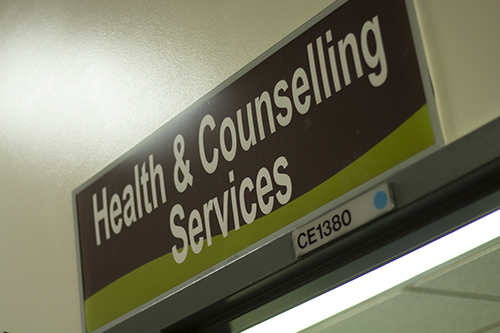With the new school year comes the stress of a change in lifestyle.
Whether it is the transition to post-secondary from high school or getting back into the grind of college life, Lethbridge College has several resources available to help with students’ mental health.
Dr. John Kennedy, a psychiatrist who works with the college, answers some common and helpful questions for students struggling in their first month back.
What is your role at Lethbridge College?
I am a physician who is trained first as a medical doctor and then subsequently trained in mental health and addiction treatments and assessments. This includes a range of difficulties and symptoms that are experienced by people of all ages but particularly some are more commonly experienced earlier in life, so they show up with the challenges that the college presents. Sometimes they’re not sure if what’s happening to them is normal or if these difficulties are just related to school. One of the reasons I’m here is to help people know where to come for help.
How often are you here?
I’m here one day a week, and I’ve done that for 12 years.
What does Arrive and Thrive mean?
Many of the students who go to Lethbridge College have lived in Lethbridge or the surrounding area their whole lives and just as many or more come from outside of Lethbridge. They come from far distances, some as far away as Newfoundland. The basic idea of health is that health is part of education and what we do today has long-term effects on how we live out our lives. The goal in providing support for health and the prevention of health difficulties is to provide a resource where people can ask questions and learn, so they can avoid these difficulties. In the unfortunate circumstance where they do get into difficulties, they can get highly specialized help quickly.
What specific resources do you provide to help with students transitioning to a new way of life?
We provide a safe place. People can come to talk about things that are bothering them, and that’s true not just in the psychiatrist’s office but with everyone here. It’s a private environment, the information doesn’t go anywhere else. Related to that, we provide evaluations of people to determine if they’re having difficulties and the reasons why. There are lots of different causes that are readily corrected if we know the persons having difficulties. To help people thrive and live they need to know how to stay on the path, and how to get good help when they get off of it.
What are some specific effects that post-secondary can have on one’s mental health?
We think of stress as a big word. If we were talking about stress’ effect on people in the business world we would say, ‘that guy had a heart attack.’ In the school environment, the equivalent of a heart attack is to have something go wrong in the nervous system. If you walk down the hallway and you see four women walk by you, one of those women is likely to have a depression.
Part of the message is also to be kind to others because we know social problems are a big issue when you first start college. Your peer group is not going to be the same as it was in high school. People tend to move this place faster. We are working on establishing group [therapy], which is intended to help people provide reassurance to themselves.
Talking is the way the brain hears that it needs to do something different. The brain only experiences what the senses allow it. If we are having difficulties and we talk about it, the brain can hear it. If we have difficulties and we only think about it, nothing will ever change.
How do you make counselling more accessible to students?
The college developed a relationship with an organization called Shepell. It provides telephone consultations as well as in person opportunities to talk with a psychologist and the impression is that has been very helpful. The best thing to do if you’re struggling is to come down to the Health Centre and we can help direct you to the best resource available.
Some students are anxious about coming to counselling. What do you have to say to those students?
It’s normal. It’s normal to be anxious to come to counselling. It is because we struggle with the idea that we’re supposed to be okay and everything is supposed to be fine. From the time we’re little kids we are told to take responsibility and just deal with things. The fact is, in life, it doesn’t really work like that. An individual who develops anxiety here has had anxiety before. We have skills that can be taught that are tremendous at helping anxiety. They should probably be given as credited courses.
How many people would you say come in here unaware that the college provides these kinds of services?
I would imagine most. With the resources we have and the ability to listen, understand what’s going on and help properly, it’s quite unique.




